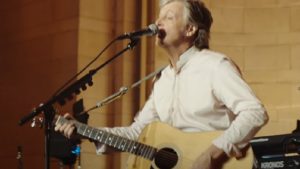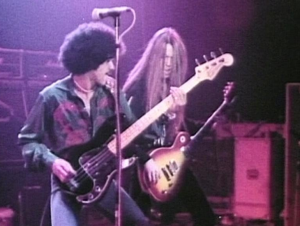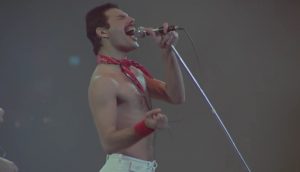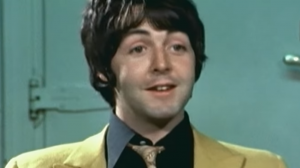3 Best Movie Soundtracks That Capture the 1970s
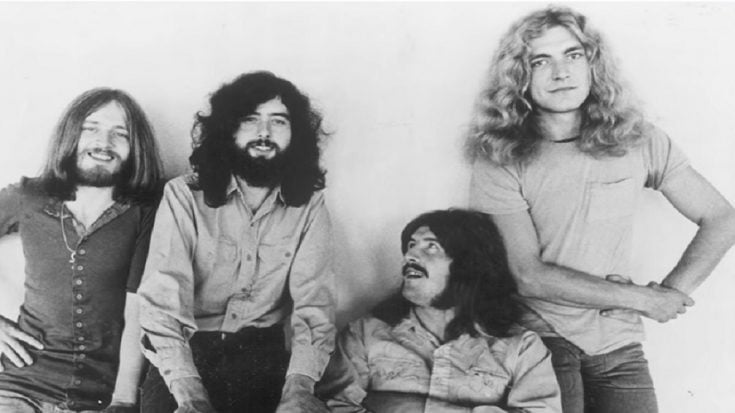
via The Howard Stern Show / YouTube
Some decades leave a deeper sonic footprint than others, and the 1970s practically stomped its way into history. While the ’50s and ’60s were crucial in setting the stage, it was the ’70s that saw rock and roll fully bloom into a dynamic, polished, and often transcendent force. The artists of the era weren’t just making hits—they were shaping culture, influencing fashion, politics, and most certainly, film.
There’s something about ’70s rock that just fits perfectly in the cinematic landscape. Maybe it’s the analog warmth, the sweeping guitar solos, or the raw emotional delivery that feels tailor-made for storytelling. Filmmakers clearly felt the same. Over the years, many have dipped into this rich decade to score their scenes, but some went all in—curating entire soundtracks that feel like time capsules of the era.
Not all soundtracks that nod to the ’70s hit the mark, but a few stand out as both nostalgic and expertly crafted. These are the films where the music isn’t just background—it’s part of the soul of the story. Let’s take a look at three of the best movie soundtracks that capture the spirit, grit, and groove of 1970s rock.
Dazed and Confused (1993)
When it comes to capturing the soul of 1970s rock, Dazed and Confused doesn’t just hit the mark—it lives there. Richard Linklater’s cult classic is a full-on immersion into the summer of 1976, right down to the flared jeans and muscle cars. It’s not just a coming-of-age story—it’s a time machine, and the soundtrack is its fuel. From the very first scene, it’s clear that the music is going to be more than a backdrop.
Every track feels handpicked by a teenager from the era. Songs like “Slow Ride,” “School’s Out,” “Tuesday’s Gone,” and “Low Rider” aren’t just iconic—they’re used in ways that bring scenes to life. The soundtrack doesn’t just reflect the period, it sets the emotional tone, capturing the energy and recklessness of youth. These aren’t random hits; they’re cultural bookmarks in a specific moment in time.
Linklater and his team created something timeless by being meticulously true to a very specific time. The music feels organic, not forced. The end result is a soundtrack that doesn’t just support the movie—it defines it. If you ever wondered what it felt like to be a teenager in 1970s America, this film and its soundtrack are as close as you’ll get without a time portal.
Almost Famous (2000)
Cameron Crowe’s Almost Famous is a personal tribute to the golden age of rock, drawn from his own experience as a teenage journalist in the thick of it all. This movie doesn’t just use 1970s music—it breathes it. The soundtrack blends perfectly with the narrative of a young writer chasing a story and finding himself in the chaos and beauty of the rock and roll world.
With tracks like “Simple Man,” “Tiny Dancer,” “One Way Out,” “That’s the Way,” and “I’m Waiting for the Man,” this film is an emotional rollercoaster with a killer playlist. Every song is placed with intention, heightening the drama, joy, and heartbreak of the characters. The now-iconic “Tiny Dancer” bus scene alone is a masterclass in how music can stitch a moment into pop culture memory.
What makes this soundtrack stand out is how intertwined it is with the story itself. You’re not just watching characters live out the 70s rock dream—you’re hearing it, feeling it, almost living it with them. Crowe didn’t just compile a list of hits. He curated a sonic journey that mirrors the highs and lows of youth, creativity, and self-discovery.
Wayne’s World (1992)
On the surface, Wayne’s World might not seem like it belongs in a list about ‘70s rock soundtracks—but don’t be fooled. The film might be rooted in early ‘90s absurdist comedy, but its soul belongs to the classic rock gods. It’s a different kind of tribute, one that balances satire with a sincere love for the music that shaped an era.
The soundtrack’s inclusion of ‘70s bangers like “Bohemian Rhapsody,” “Dream Weaver,” and “Ballroom Blitz” is more than just nostalgic—they’re strategically placed to amplify the humor and energy of the film. The “Bohemian Rhapsody” car scene alone reintroduced Queen to a whole new generation and became a cultural phenomenon in its own right.
While Wayne’s World doesn’t aim for period authenticity like the other two films, its use of ‘70s music is just as impactful. It’s a reminder that rock’s influence didn’t end with the decade—it kept echoing through the ‘80s, ‘90s, and beyond. In many ways, the film proves that a good soundtrack doesn’t need to be serious to be unforgettable—it just needs to hit the right notes.





